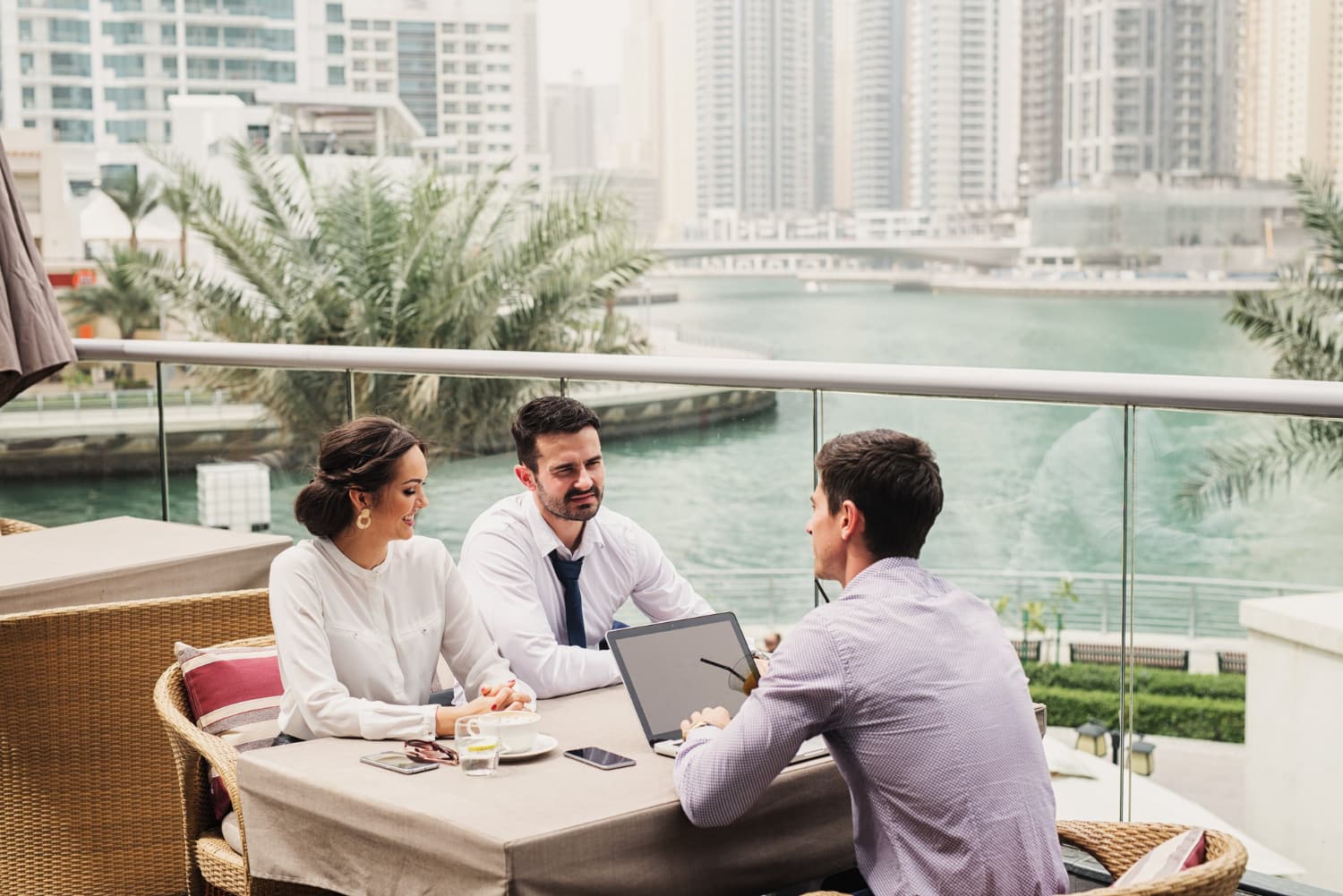Mainland vs. Free Zone vs. Offshore: Which Business Setup Is Right for You in 2025?

If you’re considering setting up a business in the UAE in 2025, one of the most important decisions you’ll face is choosing the right jurisdiction: mainland, free zone, or offshore. This choice has long-term implications for ownership, operations, taxes, and growth. As a seasoned Business Setup Consultant UAE, Dar Aluloom International Business Consultancy (a top-tier Business Consultancy UAE firm) helps guide investors through this decision, we’re breaking down the three structures and showing you how to pick the right one.
1. Mainland Company Setup
A mainland company (also called on-shore) is licensed by the relevant emirate’s economic development authority (for example the Department of Economy and Tourism – Dubai in Dubai).
Key features:
- Full market access: A mainland licence allows you to operate throughout the UAE and serve both local businesses and consumers.
- Ownership: Many activities now permit 100% foreign ownership, although certain regulated sectors may still require local participation.
- Physical office: Typically you must lease a physical office space (minimum size depending on activity) to qualify and to obtain visas.
- Tax & compliance: As of recent corporate-tax reforms, mainland companies that exceed certain profit thresholds (e.g., AED 375,000) are subject to corporate tax (around 9 % on profits above threshold) under qualifying conditions.
- Eligibility for government tenders and contracts: Mainland structure gives you better access to local procurement and public-sector deals.
Who Should Choose This Setup:
- Your target market includes UAE residents or businesses within the UAE.
- You plan to open retail outlets, physical stores, or service centres.
- You need to bid for or serve government/private sector contracts in the UAE.
- You anticipate growth with many employees and need a larger visa quota.
Drawbacks to consider:
- Setup cost and office rental may be higher than free zone or offshore alternatives.
- More regulatory and compliance obligations (office lease, local licences, etc.).
- If your business is purely international and doesn’t need the UAE-local market, you may be paying for features you don’t need.
2. Free Zone Company Setup
Free zones are special economic zones in the UAE designed to encourage business by offering incentives and streamlined procedures.
Key features:
- 100 % foreign ownership: Free zone licences almost always allow full foreign ownership from day one.
- Tax incentives: Many free-zone entities may benefit from 0 % corporate tax (subject to conditions) and 0 % import/export duties when dealing internationally.
- Simpler office/visa requirements: Some free zones allow virtual offices, shared desks or flexi-desks, especially suitable for service- or online-based businesses.
- Speed: Licence and registration processes tend to be faster in many free zones.
Limitations:
- Restricted access: Many free-zone companies cannot directly trade in the UAE mainland (i.e., to local UAE customers) without appointing a UAE distributor or agent.
- Visa quotas and office size may be limited compared to a mainland setup.
- Qualifying for tax-exemption benefits often requires meeting “qualifying free zone person” criteria; failure may lead to standard corporate tax.
Who Should Choose This Setup:
- Your business model is export-oriented, e-commerce, consulting, tech, digital services, or international trading.
- You don’t need large office space nor very high visa numbers initially.
- You want a streamlined setup and full ownership from day one.
- Your clients are outside the UAE, or you’ll operate mostly within the free zone ecosystem.
3. Offshore Company Setup
Offshore company setups in the UAE (and neighbouring jurisdictions) allow you to incorporate for international business, asset-holding, intellectual property, etc., but not for active trading in the UAE market.
Key features & considerations:
- No physical office in the UAE may be required (depending on jurisdiction).
- Ideal for holding companies, intellectual-property companies, international trade, or asset protection.
- Not designed for serving UAE-based customers or employing large staff locally.
Who Should Choose This Setup:
- You plan to run global operations, hold assets or intellectual property, and don’t need to operate in the UAE domestic market.
- You need minimal setup cost and low overhead, and you do not need a local office or large visa quota.
Drawbacks:
- It doesn’t give you access to the UAE local market.
- If you later decide to trade locally, you’ll face additional structure / licence changes.
4. How to Choose: A Simple Checklist
To decide which setup is right for you in 2025, ask yourself:
- Who are your customers? Local UAE residents/businesses → mainland. International or online only → free zone or offshore.
- Do you need to trade across the UAE mainland? If yes → mainland. If no → free zone may suffice.
- What level of visa quota / employee headcount do you anticipate? Big team → mainland. Small startup → free zone.
- How important are tax-incentives vs market access? If tax advantage and ownership are more important than local market access → free zone. If local market access is critical → mainland.
- What is your budget for office space and compliance? Smaller budget → free zone or offshore. Larger budget for physical presence → mainland.
- What are your growth ambitions? If you plan to scale quickly, open multiple branches, serve government contracts → mainland may give better flexibility.
5. Why Work with a Specialist Consultant
Navigating the differences between mainland, free zone and offshore isn’t always straightforward. That’s where working with an experienced Business Consultancy UAE firm makes a difference.
Dar Aluloom International Business Consultancy brings you:
- Tailored advice based on your business activity, target market and growth plan.
- End-to-end support from company formation, licence, visa, to compliance and bank account opening.
- Deep understanding of UAE regulations, tax reforms and jurisdiction-specific benefits, so you avoid costly mistakes.
Working with the right consultant ensures you choose the most suitable structure for your business and operational needs—not just what’s cheapest or easiest.
In 2025, the choice between a mainland, free zone or offshore business setup in the UAE hinges on your target market, business model, budget and growth plans. If your primary aim is to serve the UAE domestic market and build a large-scale local operation, a mainland company makes most sense. If you’re running a digital/consulting/export business with minimal local presence, a free zone structure may be more efficient. And for global holding or asset-based operations, an offshore setup might be the strategic route.Whatever your path, partnering with a specialist Business Setup Consultant UAE like Dar Aluloom International Business Consultancy ensures clarity, compliance and the best possible start. With the right foundation, your UAE business can thrive in a competitive and dynamic region.



